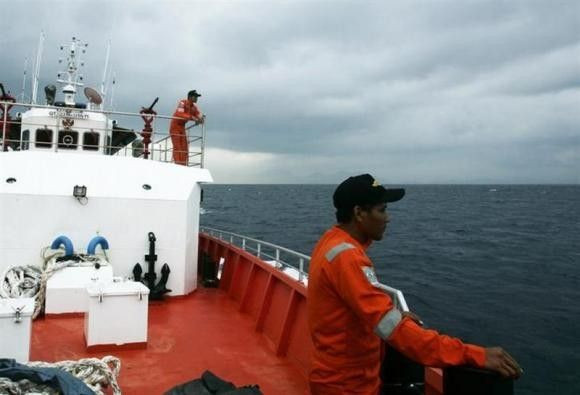Malaysian Airlines Flight 370: Bill for Search for Missing Boeing 777 Jet Runs into Millions; Despite No Pings Since Sunday, Search to Continue

The batteries of what is suspected to be the black box of the missing Malaysia Airlines Boeing 777 jet appears to have died after a month the aircraft disappeared mysteriously. Reports said that no pings had been received by search vessels in the southern Indian Ocean.
This has led to a postponement of deploying a submarine to look for the valuable black box, but Australia said that despite this development as well as the high cost of the search, it would continue scouring the ocean for debris or any clues that could lead to finding the ill-fated Flight 370 that had 239 people on board.
Angus Houston, the coordinator of the Australian search, said on Tuesday from Pearce Air Force Base, "There have been no further contacts with any transmission, and we need to continue that for several days, right up to the point at which there's absolutely no doubt that the pinger batteries will have expired."
Until then, there would be no deployment of a submarine, Mr Houston said.
Ocean Shield, the Australian Navy vessel that picked up the pings, is searching at the northern end of the defined search area, which is about 30,000 square miles. Haixun 01, the Chinese ship that also received pings, is deployed at the southern portion.
The multi-nation search has run for a few weeks now as the disappearance of the Beijing-bound aircraft marked 30 days of disappearance on April 8, Tuesday.
Read also:
Malaysian Airlines Flight 370: Australia Deploys Boeing 737 to Serve as Air Traffic Coordinator & Avert MidAir Collision Among Search Jets
Malaysian Airline Flight 370: Disappearance of Boeing 777 Made Illuminati Member Jacob Rothschild Sole Owner of Major Semiconductor Patent
Malaysian Airlines Flight 370: Another Video Hoax Claims Missing Jet's Black Box Found; Malaysian Officials Raise Possibility Plane May Never Be Found
Malaysian Airlines Flight 370: Signals from Pings Indicate Black Box Could be 14,764 Feet Underwater, Deeper than Titanic Wreck
Individual governments involved in the search have been footing the bill for the search, but coming up with a real cost is difficult since some of the expenses involved are part of the regular maintenance of these search-and-rescue capabilities.
According to News.com.au, the U.S. Department of Defense has set aside $4 million for the search mission of which it has already used $3.2 million from March 8 to 24. Another $148,000 was spent last week, while the Pentagon allocated another $3.6 million for the cost of the towed pinger locator and an underwater autonomous vehicle.
That would bring the total to $6.98 million spending by the U.S. government.
For its part, the use of the HMAS Success costs Australia's Defence Department $550,000 daily, while the bill for HMAS Toowoomba is about $380,000 a day. That would total $930,000, which would be safe to assume that Australia had spent from its own pocket more than $20 million as direct cost for marine fuel, servicing and salaries of crew.
There is also the indirect cost such as general administration, building costs and depreciation of aircraft assets.
New Zealand's Defence Force said the bulk of its cost are covered in the country's existing budget for search and rescue operations but said there would be extra costs.
Japan's Defence Ministry did not provide numbers, but News.com.au cited the Japan International Cooperation Agency's budget for emergency relief of $9.2 billion as a ballpark figure.
Malaysian Defence Minister Hishammuddin Hussein said at a press conference in March that no one among its partners in the search have talked about costs incurred. "It's all about trying to find the aircraft," he said.
Mark Thomson, senior analyst of defence economics at the Australian Strategic Policy Institute, agreed with the Malaysian official, saying, "If I listed how many planes and boats are involved, I could confect a very large number, but it wouldn't have much meaning, because we've got to pay for the boats and the planes and the pilots and the sailors anyway, and they're out there doing some stuff which is good training and reflects well on us internationally."




















